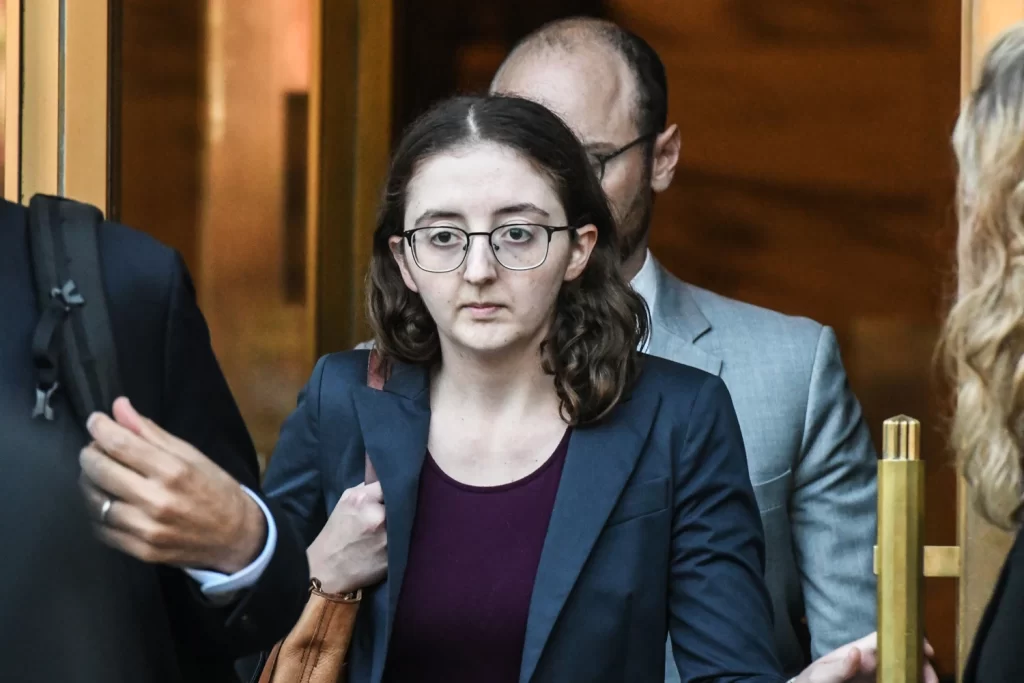Caroline Ellison sentenced to two years for role in FTX crypto fraud
3 min read

Caroline Ellison, a former top executive at the collapsed cryptocurrency exchange FTX, has been sentenced to two years in prison for her involvement in one of the largest financial frauds in U.S. history. At just 29 years old, Ellison was both a key figure at FTX and the ex-girlfriend of its founder, Sam Bankman-Fried, who received a 25-year prison sentence for defrauding customers out of over $8 billion.
As part of a plea agreement, Ellison admitted to charges such as wire fraud and money laundering, and she testified against Bankman-Fried during his trial. In addition to her prison sentence, she was ordered to forfeit more than $11 billion and may face additional restitution payments. Initially, she could have been sentenced to a maximum of 110 years in prison, underscoring the severity of her actions.
In court, Judge Lewis Kaplan acknowledged her cooperation with prosecutors as “remarkable” but also emphasized her significant culpability. He cautioned that her remorse and assistance should not serve as a “get out of jail free card.” During the proceedings, Ellison expressed deep regret for her role in the fraud, stating, “On some level, my brain can’t even comprehend the scale of the harm that I caused.”
FTX was established in 2019 and rapidly grew to become the third-largest cryptocurrency exchange in the world, boasting a valuation of $32 billion just two years later. Bankman-Fried’s success made him a billionaire and a prominent figure in the business community. However, in 2022, rumors about the company’s financial instability triggered a withdrawal rush that ultimately led to FTX’s collapse and revealed Bankman-Fried’s illicit activities.
Bankman-Fried was convicted by a New York jury last year on various charges, including wire fraud and conspiracy to commit money laundering. The trial revealed how he misappropriated customer funds for personal expenses, investments, and political donations.
Ellison was not only one of Bankman-Fried’s closest associates but also lived and worked in FTX’s luxurious offices and residences in The Bahamas. Together, the on-again, off-again couple built the dual enterprises of FTX and Alameda Research.
While Bankman-Fried was arrested and jailed prior to his trial, Ellison remained free and chose to cooperate with authorities. Her decision to testify against her former partner added a dramatic layer to the high-profile case. Over the course of three days on the stand, she revealed that Bankman-Fried directed her and others to withdraw funds from customers without their consent. In her emotional testimony, she conveyed feeling “indescribably bad” about her actions.
Ellison’s extensive cooperation with investigators was noted by the U.S. Attorney’s office in Manhattan, which declined to recommend a specific sentence but acknowledged her “extraordinary” assistance and expression of remorse. Prior to sentencing, her legal team argued that her cooperation should warrant leniency.
In related developments, Ryan Salame, co-CEO of FTX’s Bahamian subsidiary, was sentenced to 90 months in prison earlier this year. He had pleaded guilty to violating political campaign finance laws and running an illegal money-transmitting business.
Ellison’s case highlights the intricate and often tumultuous relationships within the world of cryptocurrency, where personal connections can intertwine with corporate governance and ethics. As the fallout from FTX’s collapse continues to reverberate through the financial sector, her sentencing serves as a stark reminder of the consequences of corporate malfeasance in an increasingly scrutinized industry.